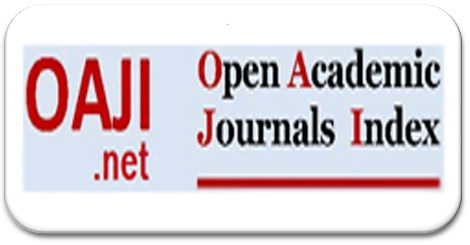Perkembangan Pemikiran Tasawuf dan Implementasinya di Era Modern
Abstract
The rapid development of science and technology on one hand created a modern civilization promising advance and ease for life. The hegemony of science and technology generating revolution of industry and information provided abundant of products and sharpened consumptive character of human to fulfill the his biological needs. On the other hand, the advance and hegemony ignore the need for safety, love, dignity, freedom, truth and justice. Because the high civilization causes human being ignored and alienated from God, environment, community, even from himself, which in effect generated disasters and disturbing crisis. To get though with, Tasawuf is believed to be solution to neutralize chaos. The implementation of tasawuf in modern era must be practiced in the frame of syari‟ah by confessing the transformation understanding of Tasawuf. It cannot be practiced by prioritizing maqamat and ahwal alone but by modifying the Tasawuf become dynamic and inclusive in order to it could be digested by spiritual intelligence. The spiritual intelligence is a way into Tasawuf, which is the exploration of spiritual life to get closer to Allah.
Keywords
Full Text:
PDFReferences
Ahmad Amin, Dzuhrul Islam, jld IV, Kairo: Maktabah an Nahdh al
Misriyah, 1964.
Ali Syari„ati, Islam dan Kemanusiaan, Dalam Wacana Pemikiran Liberal,
Charles Kurzman (Editor), Jakarta: Paramadina, 2001.
Budi Munawar- Rahman, New Age Gagasan-Gagasan Spiritual Dewasa Ini, dalam buku Rekonstruksi Renungan Religious, Editor Muhammad
Wahyu Nafis, Jakarta: Paramadina, 1990.
Dadang Hawari, Prof, dr, Psikiater, Al Qur‟an Ilmu Kedokteran Jiwa dan
Kesehatan Jiwa, Jakarta: Dana Bhakti Prima Yasa, 1997.
Hamdani Anwar, Sufi al Yunaid, Jakarta: Fikahati Aneska, 1995.
Hanna Jumhana Bastamam M, Psi, Meraih Kehidupan Bermakna, Jakarta: Paramadina, 1996.
Harun Nasution, Filsafat Mistisme Dalam Islam, Jakarta: Bulan Bintang, 1973.
„Imaduddin „Abdul Rahim, Islam Sistem Nilai Terpadu, Jakarta: Gema Insani, 2002.
Jalaluddin Rakhmat, "Makna Kejatuhan Manusia di Bumi dalam buku"
Rekonstruksi Renungan Religious (editor, Muhammad Wahyu Nafis),
Jakarta: Paramadina, 1996.
Jamaluddin Ancok, "Memaklumi Kebermaknaan Hidup "dalam Majalah Khas Tasawuf , no 09, TH II, 2002.
Karakteristik Ekonomi Islam, Surahman Hidayat, Serambi Indonesia, th 2003.
Mars. G. S. Hudgson, The Venture of Islam (edisi Indonesia, jilid IV, Jakarta: Paramadina, 1999.
Nurcholish Madjid, Islam Agama Kemanusiaan, Jakarta: Paramadina, 1995.
Nurcholish Madjid, Khazanah Intelektual Muslim, Jakarta: Paramadina, 1994.
Reinold A. Nicholson, Tasawuf Menguak Cinta Ilahi, Terjemahan, A Nasir
Radiman, Jakarta: Rajawali, 1987.
Sayyed Husein Nasser, Islam and Plight of Modern Man, London: Longman, 1978.
Yudi Latif, Masa Lalu yang Membunuh Masa Depan, Bandung: Mizan, 1999.
Zakiah Darajad, Peranan Agama dalam Kesehatan Mental, Jakarta: Gunung Agung, 1967
DOI: http://dx.doi.org/10.22373/substantia.v13i1.4816
Refbacks
- There are currently no refbacks.
Copyright (c) 2011 Meutia Farida

This work is licensed under a Creative Commons Attribution-NonCommercial 4.0 International License.
SUBSTANTIA: JURNAL ILMU-ILMU USHULUDDIN
DITERBIKAN OLEH:
FAKULTAS USHULUDDIN DAN FILSAFAT
UNIVERSITAS ISLAM NEGERI (UIN) AR-RANIRY BANDA ACEH, ACEH INDONESIA
ALAMAT REDAKSI:
Gedung Fakultas Ushuluddin Lantai II, Fakultas Ushuluddin, UIN Ar-Raniry, Jln. Lingkar Kampus, Kopelma Darussalam Banda Aceh, Aceh 23111.Telp. (0651)7551295. eMail: [email protected]

This work is licensed under a Creative Commons Attribution-NonCommercial 4.0 International License.


.png)




















